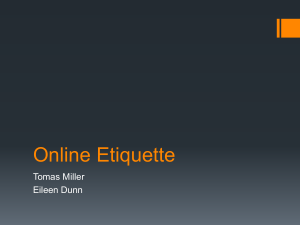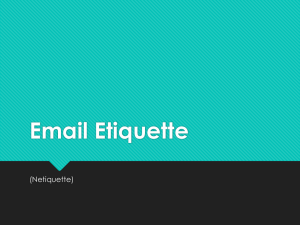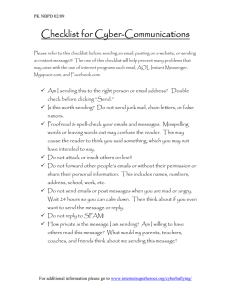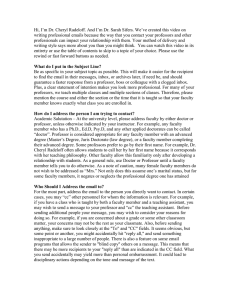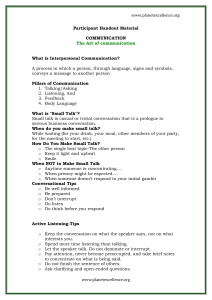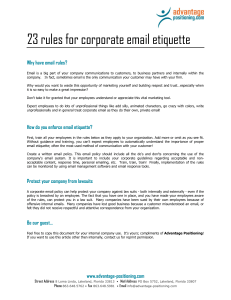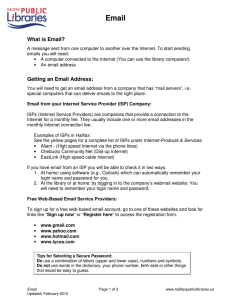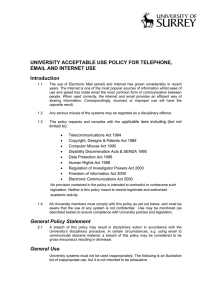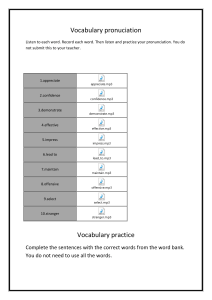Business and Workplace Email Etiquette
advertisement
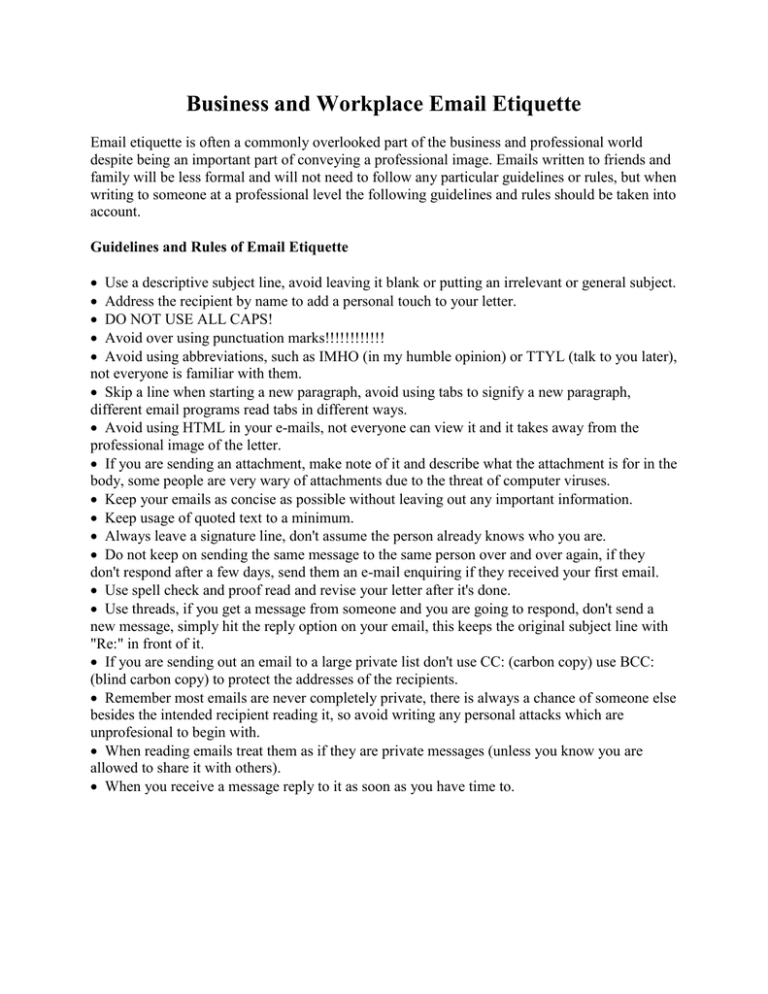
Business and Workplace Email Etiquette Email etiquette is often a commonly overlooked part of the business and professional world despite being an important part of conveying a professional image. Emails written to friends and family will be less formal and will not need to follow any particular guidelines or rules, but when writing to someone at a professional level the following guidelines and rules should be taken into account. Guidelines and Rules of Email Etiquette Use a descriptive subject line, avoid leaving it blank or putting an irrelevant or general subject. Address the recipient by name to add a personal touch to your letter. DO NOT USE ALL CAPS! Avoid over using punctuation marks!!!!!!!!!!!! Avoid using abbreviations, such as IMHO (in my humble opinion) or TTYL (talk to you later), not everyone is familiar with them. Skip a line when starting a new paragraph, avoid using tabs to signify a new paragraph, different email programs read tabs in different ways. Avoid using HTML in your e-mails, not everyone can view it and it takes away from the professional image of the letter. If you are sending an attachment, make note of it and describe what the attachment is for in the body, some people are very wary of attachments due to the threat of computer viruses. Keep your emails as concise as possible without leaving out any important information. Keep usage of quoted text to a minimum. Always leave a signature line, don't assume the person already knows who you are. Do not keep on sending the same message to the same person over and over again, if they don't respond after a few days, send them an e-mail enquiring if they received your first email. Use spell check and proof read and revise your letter after it's done. Use threads, if you get a message from someone and you are going to respond, don't send a new message, simply hit the reply option on your email, this keeps the original subject line with "Re:" in front of it. If you are sending out an email to a large private list don't use CC: (carbon copy) use BCC: (blind carbon copy) to protect the addresses of the recipients. Remember most emails are never completely private, there is always a chance of someone else besides the intended recipient reading it, so avoid writing any personal attacks which are unprofesional to begin with. When reading emails treat them as if they are private messages (unless you know you are allowed to share it with others). When you receive a message reply to it as soon as you have time to.
![Email Etiquette [DOCX 17.23KB]](http://s2.studylib.net/store/data/014986643_1-4b854c2b4516d2bec7789f195b9fd33f-300x300.png)
